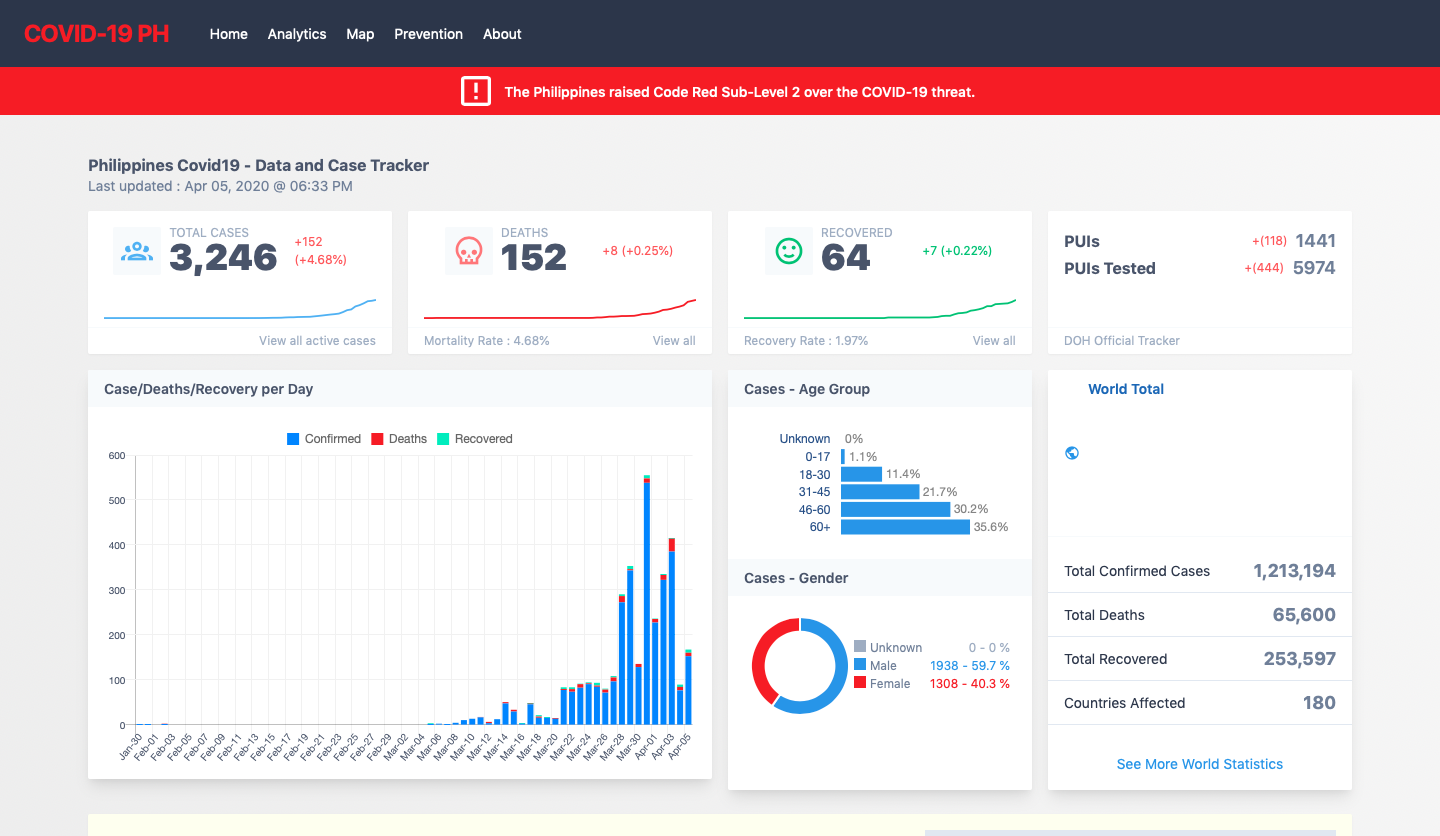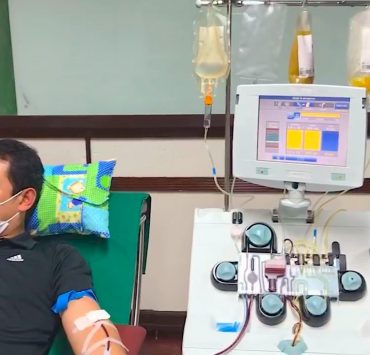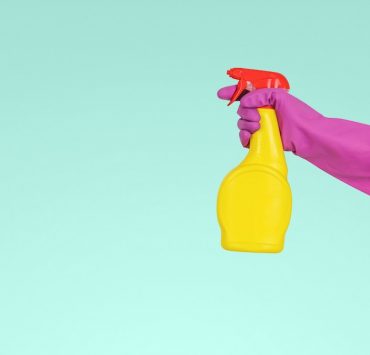Amid the pandemic, frontliners and first responders continue to carry out their respective duties of saving lives, providing food through groceries and deliveries, and maintaining cleanliness, government operations, and other essential services. However, there are still those who, despite having to abide by the strict home quarantine, have found ways to help in the fight against the virus. Much like the fashion designers who have used their talent to create personal protective equipment for medical frontliners, here are a few ways you can use your expertise in helping alleviate the effects of the pandemic.
For creatives, use your art to spread awareness
One of the most important things for the public now is to be hopeful as well as informed about the events and developments during this period. Creatives can use their talent in the visual and literary arts to depict the happenings of society right now—both concerning the health crisis and the government. Illustrations can also be used for news and information to be more digestible and memorable and graphic design can be utilized for visual representations of data.
[READ: Support frontliners and underserved communities from home through this website]
https://www.facebook.com/worksofheartph/photos/a.406106862742971/3044420475578250/?type=3&theater
Design studio And A Half designed the website “Help from Home” as a way for people to help donate to fundraisers and food drives. Works of Heart Design Studio made their own site entitled “Kamusta Kayo?” as an avenue for people to share their current state of mind amid the pandemic. On the other hand, artists like Terrence Eduarte and Gabriel Tiongson are selling their art and donating their earnings to COVID-19 efforts. Artists—graphic designers, illustrators, writers, musicians and the like—are also commissioning art for donations through the hashtag #ArtForMed on social media.
QUARANTINEDWG IS NOW OPEN FOR SECOND BATCH OF COMMISSIONS!
Check the out the mechanics and samples. Help us spread the word! #ArtforMedPH pic.twitter.com/olmVuiikFP
— #ArtforMedPH (@quarantinedwg) April 1, 2020
For journalists, report truth and be critical
The press has always served as the watchdog of society. Journalists will not only provide you with news and information, but they also serve as checks and balances for our country’s government and civilians. Under their watchful eye, journalists can use their skill and knowledge to inform the public, express opinions and delve deeper into societal issues.
https://www.facebook.com/jpgs.upd/photos/ms.c.eJw1zMENwDAMAsCNqhoDNvsvVlVRvvc4knCzJm~;kycMDGI3R7QtNEJsciNfWYDdzgYWOtPdQ15~;K~_gAgEBS~_.bps.a.4442633659095731/4442634179095679/?type=3&theater
Other than the usual media outlets reporting daily news coverage, campus journalists report news that occur within their schools and use their platforms to target students specifically to express their own opinions regarding government issues or the health crisis. Freelance photojournalists like Raffy Lerma and Ezra Acayan have captured photos that brought to light the reality of the pandemic, bringing awareness to the public.
https://www.instagram.com/p/B-zFIyThHdM/
For vloggers and influencers, encourage your fanbase to help
Celebrities and social media influencers have done wonders simply by advocating for a certain cause. With their wide and loyal patronage, they can use their influence to encourage people to donate or even to speak up against injustices amid the pandemic. They can also bring more attention to other independent and smaller COVID-19 alleviation efforts, or better yet, start their own.
YouTube vlogger Alan Soriano (AC TV) started a fundraising campaign for frontliners and was able to earn around P600,000 simply by actively posting on his social media. Celebrities, most especially singers, have started online live performances in order to encourage people to donate to their chosen charities. Some of them are Lea Salonga (who has raised P1.8M), National Artist for Music Ryan Cayabyab and Gary Valenciano.
For homecooks and chefs, cook for frontliners and vulnerable sectors
Those who have the privilege of being able to buy ingredients and cook some delicious meals can help in the fight against COVID-19 by cooking, baking or assembling meals to donate to frontliners and vulnerable communities. Even something as simple as sandwiches or rice meals can go a long way. It is also a good way to make members of the household come together to help those in need.
Restaurants like Yabu, Kanto Freestyle Breakfast and Pepper Lunch did this by donating packed meals to frontliners.
[READ: Despite potential losses due to COVID-19, these QC restaurants are helping feed medical frontliners]
For researchers and teachers, provide accurate information and knowledge
Transparency and accuracy is key when providing the public with information about the current state of the country amid the pandemic. Researchers can study and dissect the information from the government and assess whether it is truthful or feasible. To teach more people about the pandemic, teachers can hold online classes, may it be through their usual discussions or more innovative ways such as providing accurate but simple descriptions of scientific terms used when discussing COVID-19 for children and those without a background in science.

Researchers from Ateneo De Manila University have compiled an ongoing research on the allocation of government funds and other plans. University of the Philippines graduate researchers created covid19ph.com, a website that provides real time updates on our country’s confirmed cases, deaths and recoveries. Medical professors from Johns Hopkins University and World Health Organization have even posted short courses online about pandemics, health crises and COVID-19. There are also some short courses on global ethics, video storytelling, ballet and more that can keep people’s minds active during the quarantine.
[READ: 5 free and useful online courses you can sign up for]
For managers and developers, organize new platforms
These people can be considered the brains and leaders behind successful businesses, and their skills in logistics, organization and development can be utilized most efficiently when implementing or continuing plans and actions that can help fight COVID-19. Managers can organize groups and communities to mobilize resources from donors to receivers alongside developers who can think of more innovative mediums to ease processes and operations during the pandemic.
[READ: RapidPass is a QR code system that will provide faster checkpoint passage for frontliners]
https://www.instagram.com/p/B-56crhAQHN/
Created by a group of technological developers, WeCare is a website that connects donors and frontliners or communities in need–a great example of independent efforts from private sectors. DevCom also created RapidPass, a virtual identification system that makes use of QR code technology to provide frontliners easier passage through checkpoints. University of the Philippines also created endcov.ph which features a detailed map of COVID-19 cases, quarantine checkpoints and hospital, along with a virtual symptoms checker based on the Department of Health’s triage algorithm for COVID-19.
Get more stories like this by subscribing to our weekly newsletter here.
Read more:
Praises are posted online—but it’s different from what frontliners face in reality
These essential workers are frontliners too deserving of our gratitude
Your perseverance as hope: A thank you to the frontliners in the fight against COVID-19
Writer: THEA TORRES
ART JOEY SIMBULAN




